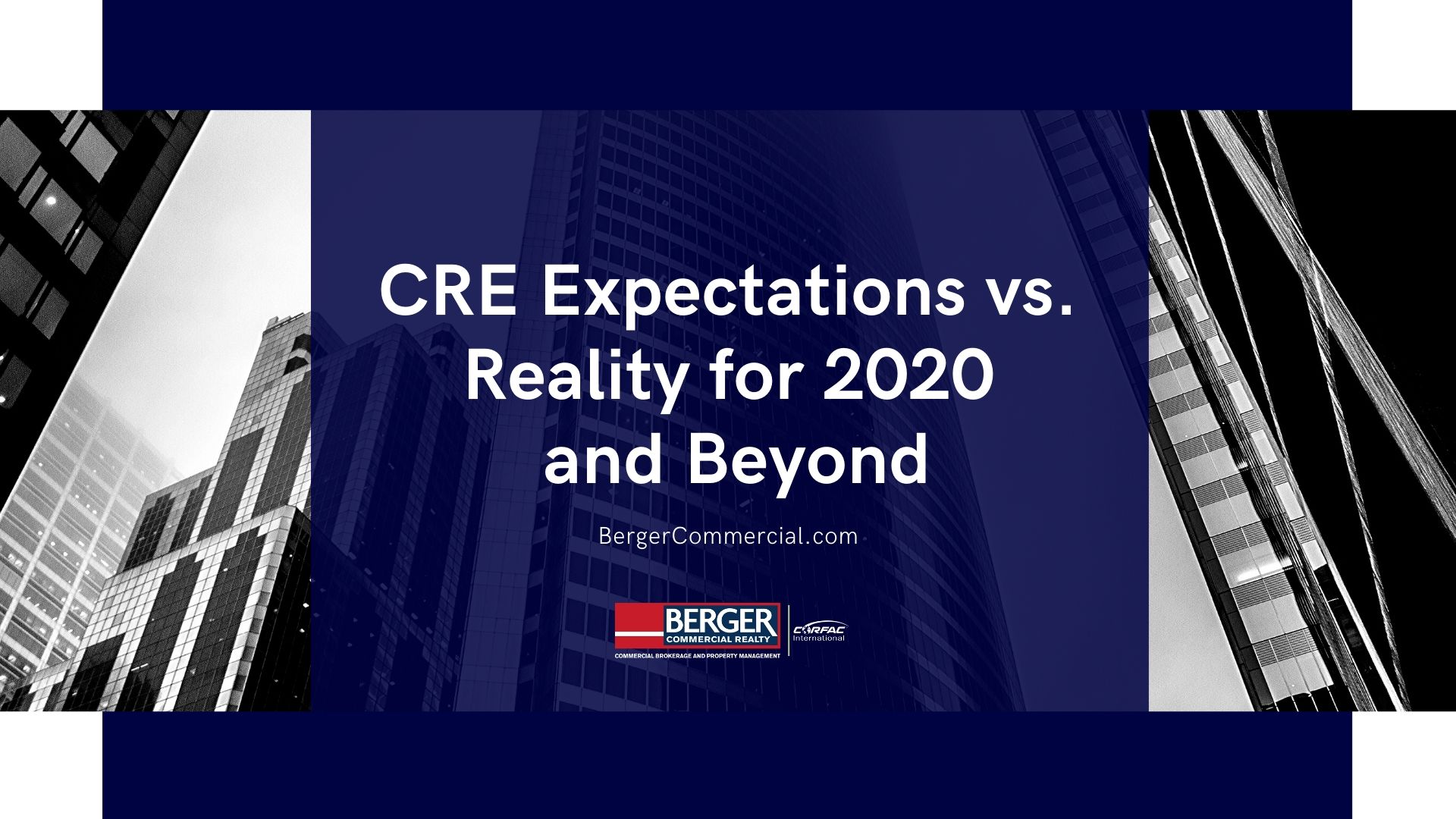
CRE Expectations vs. Reality for 2020 and Beyond
Berger Commercial Realty / November 12, 2019
 As the US economy's expansion surpasses a decade, Deloitte's Uncharted Territory report casts commercial real estate (CRE) as an attractive investment alternative. With bond yields low and equities looking shaky, investing in CRE makes more sense than ever before. To understand why, we need to consider the current state of the economy and the strength of CRE fundamentals.
As the US economy's expansion surpasses a decade, Deloitte's Uncharted Territory report casts commercial real estate (CRE) as an attractive investment alternative. With bond yields low and equities looking shaky, investing in CRE makes more sense than ever before. To understand why, we need to consider the current state of the economy and the strength of CRE fundamentals.
How the current expansion has continued for so long
To combat the worst economic crisis since the Great Depression, in 2008 the Fed turned to an unconventional strategy previously employed by the Bank of Japan: quantitative easing (QE). QE is a method for creating monetary stimulus when interest rates have already been cut so low that further reductions are ineffective or impossible. The central bank buys securities, which increases the money supply, spurring banks to lend more and businesses to continue investing, allowing the economy to enter an expansion phase. The desired expansion began in 2009 and has continued through 2019. No other expansion has lasted over a decade, with typical expansions lasting about 59 months. This has led to fear that a recession must be around the corner. Though most economists agree that recessions are bound to happen, considering a 2020 recession as inevitable is a mistake. It ignores the effects of QE and low interest rates, which have resulted in consistent Gross Domestic Product (GDP) growth at a low rate. This opens the possibility of continued slow and steady growth in coming years, rather than the high growth of previous expansions that burned out much quicker. The Federal Open Market Committee (FOMC) forecasts a 1.9 percent growth rate for 2020 and 1.8 percent for 2021. Jim Cramer, host of CNBC's Mad Money, counsels against 2020 pessimism because he believes no one can accurately predict whether a recession will rear its ugly head during that year. Money making opportunities will still abound in 2020, so sitting on the sidelines over recession fears is a mistake. The key is choosing the asset classes that benefit from the current economic conditions. CRE is one asset class investors need to embrace as we go into the uncertainty of 2020.CRE investment versus stocks and bonds
In addition to recession fears, the US-China trade war, unrest in Hong Kong, European and Chinese deceleration, and Brexit all weigh heavily on global trade, investments and equities. Most family office managers see geopolitical turmoil as a risk and predict falling stock prices. With interest rates so low, fixed income investments offer a poor alternative. In this environment, Deloitte sees CRE as an excellent alternative to stocks and bonds. Though it is not immune to the vagaries of an uncertain economy, CRE's fundamentals are in superb shape. Consider the following:- The April 2019 AFIRE survey indicated continued global investor confidence in CRE.
- CRE vacancy levels continue to decline.
- Total transaction volume increased 2 percent year-over-year as of Q2 2019.
- Despite tightened CRE lending standards, loan demand remains strong.
- The Real Capital Analytics Commercial Property Price Indices increased 2.4 percent in Q2 2019, while the national all-property index increased 6.5 percent year-over-year.
- Commercial property cap rates remain stable.
« Previous Next »
